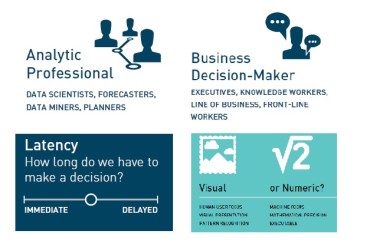
Cloud native ecosystem could be in danger of melting, according to a technical oversight committee chair, due to lack of new contributors.
The cloud native ecosystem is in “danger of melting” if community organizers and others do not do a better job at attracting new contributors to develop and maintain open source projects.
That’s according to Cloud Native Computing Foundation (CNCF) technical oversight committee chair, Emily Fox, who spoke about the dangers facing the open source community in the future at a Kubecon Europe session.
SEE ALSO: Over 50% Of Businesses Not Seeing Cloud Benefits
“Experience and innovation is what allows us to make better and more informed decisions to sustain some of these amazing projects and communities. That information is actually what I call knowledge glaciers,” said Fox. “We’re seeing less and less individuals step into leadership roles. Because the time to onboard into these positions is non-existent, that places us in a reactive mode, having that gap in knowledge with no one ready to transition into those roles. And this is where glacial melt actually begins to accelerate for our projects.”
CNCF have been able to build a reputable portfolio of projects, some donated by large technology firms such as Google, Docker, and Uber. These projects, which are at four different levels of maturity depending on the rate of production-grade, adoption, and longevity, are maintained by volunteer CNCF members who often have day jobs in the tech industry.
While the membership of CNCF has increased over the past three years, reaching 178,000 members in 2022, there is a worry that as more is added onto projects, the burden of knowledge becomes so great that only specialists can maintain and update properly. This also makes it less likely for new contributors to step in, especially if the project is in a mature state and may not be considered in need of full-time maintenance.
It is also the case that for some mature projects, only a handful of CNCF members are committed to maintaining it and this can lead to burnout. Members who have spent a long time on a single project have mentioned to Fox feeling guilty leaving the project, if there are not contributors ready to step in their place. “They want to try something new, they want something that’s exciting, but there are no contributors in place within their project to step in behind them,” said Fox.
There is no easy fix for this, especially as the capacity for developers to spend time on other projects has been reduced following the layoffs of thousands of cloud native developers, especially at large tech companies such as Google and Meta, which contribute a lot to the development and maintenance of open source projects.
Along with the CNCF, Fox is calling on more project contributors to come forward and help with succession planning for projects, allowing old-time contributors to move on to new projects. The foundation is also reworking the criteria for projects to move to a graduated state, at which time they need less active development and maintenance.



























